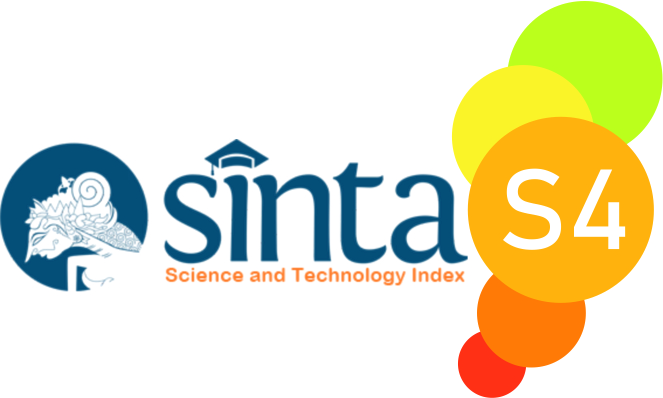Advancing Elementary Vocabulary Education with Wordwall-Based Digital Media
Abstract
In Indonesia, the education curriculum underwent numerous changes, with the most recent being the Merdeka curriculum. Vocabulary was a crucial component in English language learning. This study aimed to develop Wordwall-based learning media for vocabulary using the "My Next Words" book at SD Negeri 1 Baktiseraga for fourth-grade students in the second semester. The research involved classroom observations, interviews with English teachers, and analysis of the curriculum and students' needs. In the planning stage, the design of Wordwall games focused on vocabulary learning objectives aligned with the "My Next Words" curriculum. Development included creating Wordwall games, selecting templates, types of games, and integrating interactive features. After development, Wordwall products were evaluated and approved by education and technology experts, then integrated into the learning process for fourth-grade students at SD Negeri 1 Baktiseraga. Evaluation assessed the effectiveness of Wordwall in enhancing students' vocabulary comprehension, with experts reviewing the quality of learning materials, user experience, and its impact on students' learning motivation. The results indicated that Wordwall was effective in improving English vocabulary acquisition and making learning more engaging and motivating for students.
References
Andriani, R., & Rasto, R. (2019). Motivasi belajar sebagai determinan hasil belajar siswa. Jurnal pendidikan manajemen perkantoran, 4(1), 80-86.
Arimbawa, I. G. P. A. (2021). Penerapan word wall game quis berpadukan classroom untuk meningkatkan motivasi dan prestasi belajar biologi. Indonesian Journal of Educational Development (IJED), 2(2), 324-332.
Bakhsh, S. A. (2016). Using Games as a Tool in Teaching Vocabulary to Young Learners. English language teaching, 9(7), 120-128.
Findawati, Y. (2014). Suprianto,“Bahan Ajar Multimedia Interaktif Kewirausahaan SMK Menggunakan model Pembelajaran Problem Based Learning”. JNTETI, ISSN, 2301-4156.
Gregory, R. J. (2004). Psychological testing: History, principles, and applications. Pearson Education India.
Hamers, J. F., & Blanc, M. (2000). Bilinguality and bilingualism. Cambridge University Press.
Harmer, J. (2007). The practice of English language teaching 4th edition. Harlow: England Pearson Education.
Jantke, K. P., & Hume, T. (2015, January). Effective learning through meaning construction in digital role playing games. In 2015 IEEE International Conference on Consumer Electronics (ICCE) (pp. 653-656). IEEE.
Liyana, A., & Kurniawan, M. (2019). Speaking pyramid sebagai media pembelajaran kosa kata bahasa inggris anak usia 5-6 tahun. Jurnal Obsesi: Jurnal Pendidikan Anak Usia Dini, 3(1), 225-232.
Mardali, J., & Siyyari, M. (2019). English teachers’ beliefs and practices in teaching vocabulary: The case of teaching experience. Cogent Education, 6(1), 1686812.
Marhamah, M., & Mulyadi, M. (2020). The effect of using word wall picture media and linguistic intelligence to enhance learning outcomes of English vocabularies. Journal of Educational and Social Research, 10(2), 134-142.
Mubar, M. K. N. A. (2015). Developing English learning materials for young learners based on needs analysis at MTSN model Makassar. ETERNAL (English, Teaching, Learning, and Research Journal), 1(2), 313-330.
Novianti, P., & Ambarwati, E. K. (2023). A Textbook Analysis of “My Next Words” for the Fifth Grade Elementary School. Jo-ELT (Journal of English Language Teaching) Fakultas Pendidikan Bahasa & Seni Prodi Pendidikan Bahasa Inggris IKIP, 10(1), 12-25.
Pradini, P. C., & Adnyayanti, N. L. P. E. (2022). Teaching english vocabulary to young learners with wordwall application: An experimental study. Journal of Educational Study, 2(2), 187-196.
Retnawati, H. (2016). Proving content validity of self-regulated learning scale (The comparison of Aiken index and expanded Gregory index). REiD (Research and Evaluation in Education), 2(2), 155-164.
Richey, R. C., & Klein, J. D. (2005). Developmental research methods: Creating knowledge from instructional design and development practice. Journal of Computing in higher Education, 16, 23-38.
Richey, R. C., & Klein, J. D. (2014). Design and development research. Handbook of research on educational communications and technology, 141-150.
Tegeh, I. M. (2022). The Impact Of Social Skills Training On The Ability To Cooperate In Early Childhood. Indonesian Values and Character Education Journal, 5(1), 32-41.
Tegeh, I. M., & Kirna, I. M. (2013). Pengembangan Bahan ajar metode penelitian pendidikan dengan addie model. Jurnal Ika, 11(1).
Widyastuti, E. (2019, March). Using the ADDIE model to develop learning material for actuarial mathematics. In Journal of Physics: Conference Series (Vol. 1188, No. 1, p. 012052). IOP Publishing.
Yulita, F. R., & Hertiki, H. (2023). Tiktok as a Learning Media in Teaching Speaking Skill: EFL Students’ Perception. Journey: Journal of English Language and Pedagogy, 6(2), 349-355.
Copyright (c) 2024 I Komang Yogi Pratama Wedananta, I. G. A. Lokita Purnamika Utami, G. A. P. Suprianti

This work is licensed under a Creative Commons Attribution-ShareAlike 4.0 International License.

Journey: Journal of English Language and Pedagogy by http://ejurnal.budiutomomalang.ac.id/index.php/journey/index is licensed under a Creative Commons Attribution-ShareAlike 4.0 International License.






